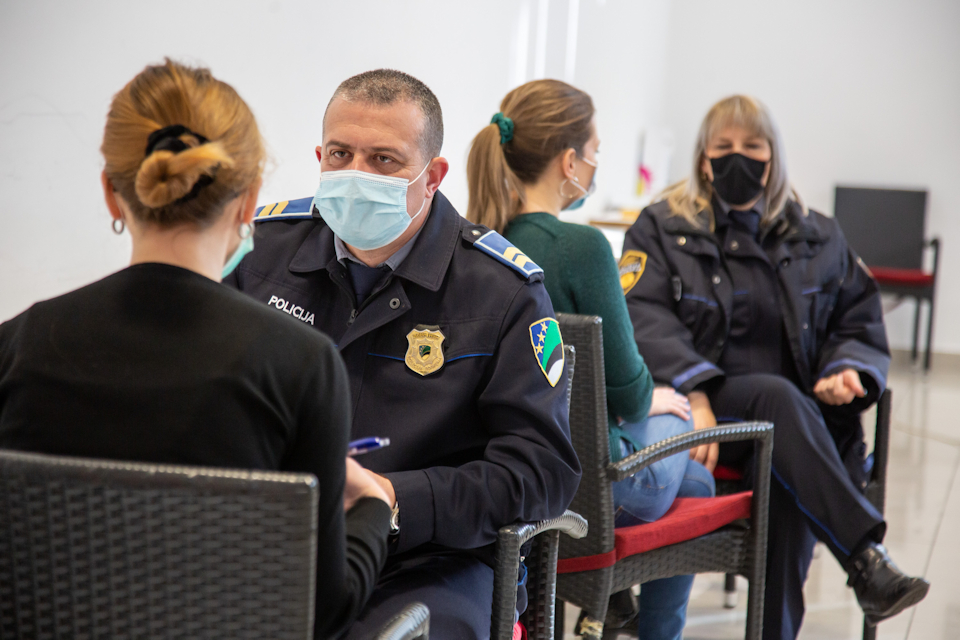
Ending Violence against Women

UN Women has been supporting governments at national and entity level in implementing norms and standards enshrined in the Council of Europe (CoE) Istanbul Convention. With the support of Sweden and the European Union, and in collaboration with governmental institutions and civil society organizations, UN Women works on strengthening institutional and social response mechanisms to combat violence against women (VAW) and domestic violence (DV). UN Women puts a strong focus on prevention of VAWG and working with men, women and youth in changing attitudes and beliefs about gender stereotypes on individual and on community level.
Our Results
Following the ratification of the Istanbul Convention, from 2013 to 2019 UN Women has been working on and supporting various initiatives under the EVAW portfolio:
- Undertook the first national prevalence survey on gender-based violence in partnership with the Agency for Gender Equality, Gender center of Federation BiH and Gender center of Republika Srpska, BiH Statistics Agency and UNFPA;
- Assisted in the development of the National Framework Strategy to implement the Istanbul Convention 2015-2018;
- Supported the creation and strengthening of Medica Zenica’s Institutional Networks for the Support of Victims/Witnesses;
- Contributed to the development and strengthening of quality local multisectoral response to DV and VAW though policy development, training programs, monitoring and mentoring support, and networking of first responders.
- Supported the work with young men and women in educational settings to change attitudes and behaviors around gender equality and VAWG, work with media professionals on responsible reporting on GBV and the religious leaders on prevention of violence.
- Developed high-quality knowledge products such as Analysis of the Cost of Domestic Violence: Estimating the Cost of Multi-sectoral Response at the Local Level in Bosnia and Herzegovina and Essential services: analysis of the access to support services (health, police and justice and social services) for women belonging to marginalised groups who have experienced violence.
- Supported the development of the second national prevalence study on well-being and safety of women in BiH led by OSCE.
- Provided technical support to the Agency for Gender Equality of BiH in preparation of the Progress report on the implementation of the Beijing Declaration and Platform for Action in BiH within the Beijing +25 process and the first GREVIO report.
- Supported CSOs in applying a new approach to prevention and response to cases of DV and more consistent implementation of the legislation by using the methodology Communications for Behavioral Impact.
- As a response to the COVID-19 pandemic, support was provided to 8 safe houses with PPE and other equipment, small reconstructions of premises, and other services to ensure uninterrupted support to women survivors of violence in the period of crisis.
Ongoing Projects and Initiatives in BiH
- Support to enhancement of the legislative framework on VAW with a focus on sexual violence and domestic violence and alignment with the Istanbul Convention;
- Support to entity and local level efforts in ensuring availability and accessibility of services for survivors of DV in line with the standards defined in the Istanbul Convention with a special focus on the most vulnerable groups of women;
- Addressing harmful attitudes around gender equality and VAW with a strong focus on gender stereotypes, VAW including sexual harassment by working with young men and women, and local and religious communities;
- Raising awareness on various forms of VAW including sexual harassment in public spaces and working with the media community to report on VAW in line with ethical and professional standards and to contribute to the wider efforts in prevention of VAW.